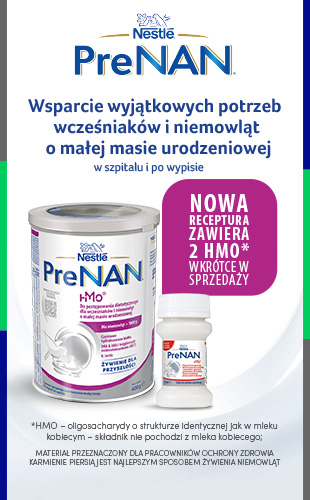Wpływ cesarskiego cięcia i innych czynników warunkujących skład mikrobioty jelitowej u noworodków na ich stan zdrowia w przyszłości
Słowa kluczowe / Keywords:
Streszczenie:
W ostatnich latach obserwuje się wzrost zachorowań na choroby alergiczne. Jedną z przyczyn zachorowalności może być zaburzenie prawidłowego składu mikrobioty jelitowej we wczesnej fazie rozwoju dziecka. Badania naukowe potwierdziły, iż poród przez cięcie cesarskie może powodować zaburzenia składu mikrobioty jelitowej noworodka. Nie ma jednak wiarygodnych dowodów, że sam rodzaj porodu wpływa na rozwój alergii w późniejszym okresie życia. Udowodniono natomiast zależność pomiędzy cięciem cesarskim a występowaniem niemowlęcej egzemy. Tak więc nasuwa się pytanie, czy możliwa jest modyfikacja składu mikrobioty rodzącego się dziecka poprzez odpowiednie procedury stosowane w okresie okołoporodowym lub poprzez wczesną suplementację bakterii probiotycznych. Do tej pory stwierdzono, iż doustna podaż probiotyków zmienia korzystnie mikrobiom przewodu pokarmowego noworodków urodzonych drogą cięcia cesarskiego. Potwierdzono również bezpieczeństwo doustnego stosowania probiotyków, nawet u wcześniaków z małą urodzeniową masą ciała, a także zmniejszenie odsetka posocznic gronkowcowych w tej grupie pacjentów.
Standardy Medyczne/Pediatria 2020 T. 17, 619-623, DOI:10.17443/SMP2020.17.08
Abstract:
In the recent years there has been an increase in the incidence of allergic diseases. One of the possible reasons behind this surge might be a disruption to the natural composition of the intestinal microbiota in the early stages of a child’s development. Previous studies have proved that caesarean section could potentially result in a disruption to the composition of the intestinal microbiota of a neonate. Notwithstanding, credible evidence that the delivery method itself might prompt the development of an allergy in the later life of a newborn is still lacking. However, a relation between the caesarean section and infantile eczema has been established and verified. Henceforth, there is a question rising whether it could be possible to modify the composition of the intestinal microbiota in newborns – either by specific procedures carried out during the perinatal period or by early supplementation of probiotic bacteria. So far it has been established that oral supplementation of probiotics has a positive effect upon the intestinal microbiome composition in neonates born by the caesarean section. Furthermore, the safety of the intervention has been demonstrated in premature neonates with very low birth weight. Moreover, the intervention has also been proved to decrease the incidence of a staphylococcal sepsis in this group.
Standardy Medyczne/Pediatria 2020, T. 17, 619-623, DOI:10.17443/SMP2020.17.08
Strona przeznaczona dla lekarzy i osób pracujących w ochronie zdrowia. Wchodząc tu, potwierdzasz, że jesteś osobą uprawnioną do przeglądania zawartych na tej stronie treści.


